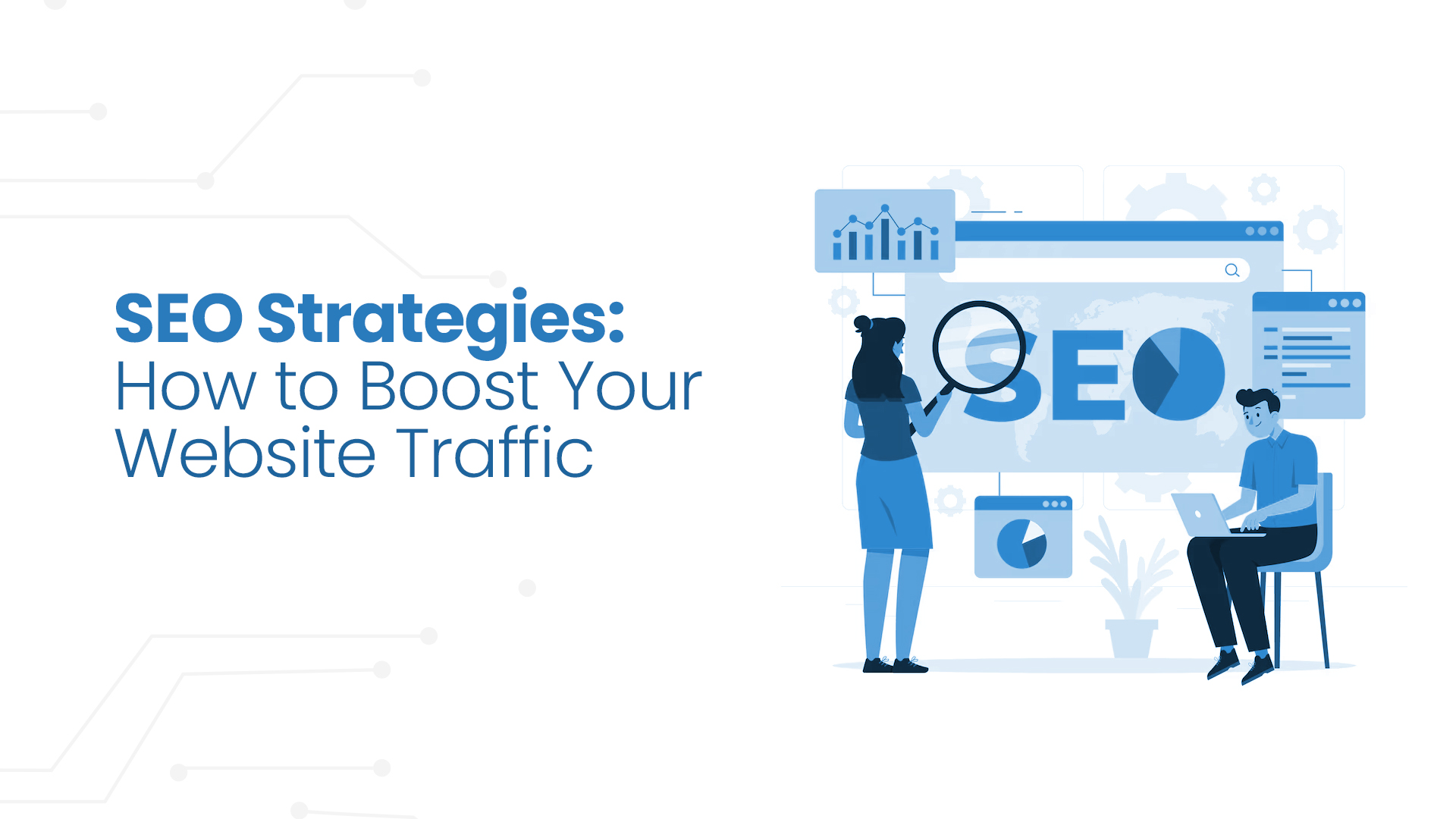In this digital age, driving traffic to your website is essential for success, whether you’re running a blog, an e-commerce store, or a corporate site. Search Engine Optimization (SEO) is a powerful tool that can help increase your website’s visibility and attract more visitors. Here are effective SEO strategies to boost your website traffic, with beautiful insights from the best SEO companies and search engine optimization services.
1. Conduct Keyword Research
Keyword research is the foundation of any successful SEO strategy. Identify the keywords and phrases your target audience is using to find content related to your niche. Best SEO companies use tools like Google Keyword Planner, SEMrush, or Ahrefs to discover relevant keywords, their search volume, and competition. Focus on long-tail keywords, as they often have less competition and can attract more targeted traffic.
Action Steps:
- List primary and secondary keywords for each page.
- Analyze competitors’ keywords for inspiration.
- Use variations of keywords to capture different search intents.
2. Optimize On-Page Elements
Once you have your keywords, it’s crucial to optimize on-page elements such as title tags, meta descriptions, headers, and content. Some of those ideal and best search engine optimization companies emphasize ensuring that your primary keyword appears in the title, preferably at the beginning. Write compelling meta descriptions that encourage clicks and incorporate keywords naturally throughout your content.
Action Steps:
- Use the primary keyword in the first 100 words of your content.
- Break up content with headers (H1, H2, H3) and include keywords where appropriate.
- Ensure images have descriptive alt tags with relevant keywords.
3. Create High-Quality Content
Content is king in the world of SEO. Producing high-quality, informative, and engaging content can establish your website as an authority in your field. Top search engine optimization services recommend focusing on creating content that addresses the needs and questions of your audience. Incorporate a mix of articles, infographics, videos, and podcasts to cater various preferences.
Action Steps:
- Publish regular blog posts that provide value to your audience.
- Create comprehensive guides or resources that cover topics in-depth.
- Use storytelling techniques to make your content relatable.

4. Improve Site Speed and Mobile Optimization
Website speed and mobile-friendliness are critical ranking factors for search engines. A slow-loading website can lead to high bounce rates, negatively impacting your SEO efforts. Avail the best SEO services that can highlight the importance of optimizing site speed by compressing images, utilizing browser caching, and minimizing HTTP requests. Additionally, ensure your website is responsive and provides a seamless experience across all devices.
Action Steps:
- Use tools like Google PageSpeed Insights to identify areas for improvement.
- Implement responsive design techniques for mobile optimization.
- Regularly monitor your website’s performance to ensure optimal loading times.
5. Build Quality Backlinks
Backlinks are a significant ranking factor in SEO. They indicate to search engines that your content is valuable and credible. Focus on building high-quality backlinks from reputable websites in your niche. This is achieved through guest posting, influencer outreach, and creating shareable content.
Action Steps:
- Identify authoritative websites for potential backlink opportunities.
- Write guest posts that include links back to your site.
- Create infographics or research studies that others may want to cite.
6. Utilize Social Media
Social media platforms can significantly boost your website traffic. By sharing your content on social media, you can reach a broader audience and drive traffic back to your site. Many search engine optimization companies recommend engaging with your followers by responding to comments, sharing relevant content, and participating in discussions.
Action Steps:
- Create a social media strategy that aligns with your content calendar.
- Use platforms like Facebook, Twitter, Instagram, and LinkedIn to promote your content.
- Encourage sharing by adding social media buttons to your blog posts.

7. Monitor and Analyze Performance
Finally, continuously monitor your website’s performance using tools like Google Analytics and Google Search Console. The stress lies in the importance of analyzing traffic patterns, user behavior, and conversion rates to identify areas for improvement. Regularly reviewing your SEO strategy will help you adapt to changes in search engine algorithms and audience preferences.
Action Steps:
- Set up Google Analytics to track website traffic and user behavior.
- Monitor keyword rankings and adjust your strategy as needed.
- Conduct regular audits of your website’s SEO performance.
Lets conclude with an understanding that, Implementing these SEO strategies can significantly enhance your website traffic, helping you achieve your online goals. However, navigating the complexities of SEO can be challenging. That’s where expert guidance comes in. At GL Infotech, we specialize in providing tailored search engine optimization services that align with your business needs.
Whether you’re looking to improve your site’s ranking, drive targeted traffic, or enhance user experience, our team of SEO professionals is here to help. Don’t leave your website’s success to chance—contact GL Infotech today and let us optimize your online presence with cutting-edge SEO solutions. Start your journey to better visibility, increased traffic, and long-term growth now!
Web Design & Development Ecommerce Web Development ERP Software Development




